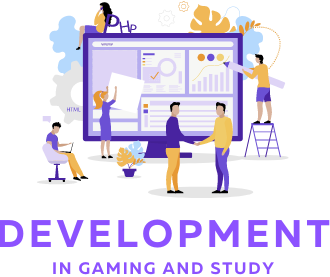In recent years, esports has become a global phenomenon, reshaping the world of entertainment and sports. Once considered a niche hobby, competitive gaming now attracts millions of fans and players worldwide, turning video games into a professional sport. The evolution of esports has been driven by the increasing popularity of online gaming, the rise of streaming platforms, and the growing demand for high-quality competitive experiences.
Esports, short for electronic sports, involves tarungtoto organized multiplayer video game competitions, particularly between professional players and teams. Popular titles such as “League of Legends,” “Counter-Strike,” and “Fortnite” have become staples of the competitive gaming scene. These games are played in tournaments and leagues, often with significant prize pools, sponsorships, and global recognition for top players. As a result, esports has transformed from a hobby to a legitimate career path, offering professional gamers the chance to make a living by competing and streaming their gameplay.
One of the key factors behind the rapid growth of esports is the rise of streaming platforms such as Twitch and YouTube Gaming. These platforms have made it possible for gamers to broadcast their gameplay to a global audience in real time, allowing fans to watch, interact, and support their favorite players. Live streaming has created a new form of entertainment, where fans can tune in to watch intense matches, learn strategies, or simply enjoy the personalities of their favorite streamers. The ability to watch esports tournaments live has made the competitions more accessible and engaging, attracting millions of viewers worldwide.
In addition to streaming, social media has played a major role in the growth of esports. Platforms like Twitter, Reddit, and Instagram have allowed fans to stay up-to-date on the latest news, matches, and player activities. Esports has fostered a highly engaged community of fans who follow teams, players, and events, often creating memes, fan art, and discussions around their favorite games. This sense of community has helped build a strong culture around esports, where fans and players alike share their passion for competitive gaming.
Esports has also become a multi-billion-dollar industry, attracting sponsorships and investments from major corporations. Companies like Intel, Red Bull, and Nike have partnered with esports organizations to promote their brands and support tournaments. The financial growth of esports has been fueled by the increasing viewership and participation in gaming events, making it one of the fastest-growing entertainment sectors. Prize pools for major tournaments often reach millions of dollars, and sponsorship deals continue to grow, helping to sustain the industry and provide financial opportunities for players and teams.
As esports has evolved, the competitive gaming scene has also become more professionalized. Esports organizations now function much like traditional sports teams, with players receiving salaries, sponsorships, and benefits. Professional players often train for hours each day, working with coaches and analysts to improve their skills and strategies. Teams have established training facilities, sports psychologists, and even medical staff to ensure that players remain in top physical and mental condition. The level of professionalism in esports has helped raise the status of players, making them role models and celebrities within the gaming community.
Another important aspect of esports is its global reach. Unlike traditional sports, which may be limited by geography or regional interest, esports has a worldwide following. Players from countries like South Korea, the United States, and China regularly compete against each other in international tournaments, uniting people from different cultures and backgrounds. Esports events like the “League of Legends World Championship” and “The International” for “Dota 2” draw millions of viewers across the globe, and the international nature of these events has made esports a truly global form of entertainment.
As esports continues to grow, its integration with traditional sports has also become more apparent. Several professional sports leagues, including the NFL and NBA, have started exploring esports through partnerships, events, and gaming leagues. For example, the NBA launched the NBA 2K League, where players compete in the popular basketball simulation game, NBA 2K. This partnership between traditional sports and esports is helping bridge the gap between the two industries and expanding the appeal of esports to a wider audience.
Looking ahead, the future of esports seems bright, with technological advancements continuing to shape the industry. The integration of virtual reality (VR) and augmented reality (AR) into competitive gaming could change the way players interact with games, offering a more immersive experience. Additionally, the use of artificial intelligence (AI) and machine learning to improve player performance and game design is likely to enhance both the competitive and spectator aspects of esports. As esports continues to grow in size and influence, it will become an even more significant part of global entertainment and culture.
In conclusion, esports has evolved from a small hobby into a massive global industry with millions of fans, professional players, and opportunities. Streaming, social media, sponsorships, and a professionalized structure have all contributed to the rise of esports as a mainstream form of entertainment. With continued technological innovation and the growing integration of esports with traditional sports, the future of competitive gaming looks incredibly promising. Whether as a player, fan, or content creator, esports offers endless possibilities and is poised to remain a dominant force in the entertainment world.
